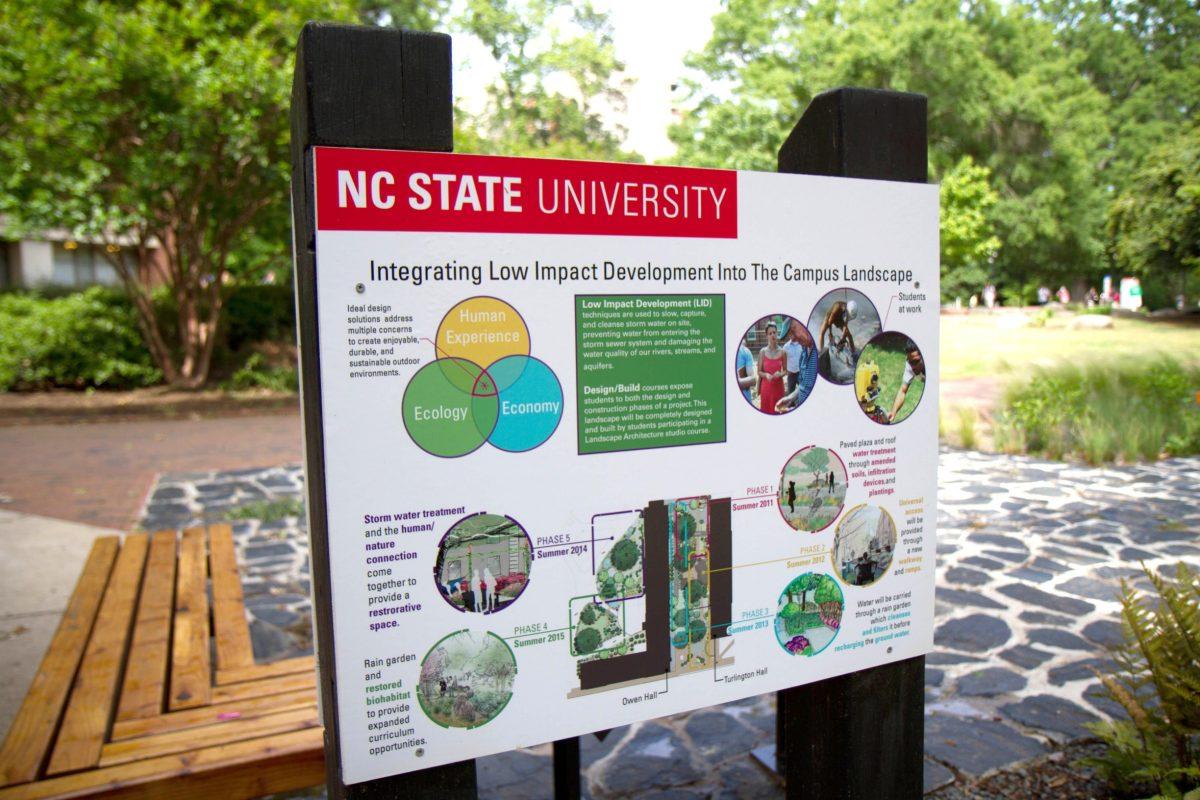With Earth Day celebrations winding down and allergy season reaching its peak, the University received a pleasant surprise when Princeton Review named N.C . State one of the most environmentally responsible campuses.
The Princeton Review is a service that helps students prepare for their journey into higher education by giving help in ACT, SAT and LSAT preparations and giving high school students guides on how to choose the right college. Recently, they partnered with the U.S . Green Building Council to create The Princeton Review’s Guide to 322 Green Colleges. This 230 plus page guide profiles 320 colleges that demonstrate a strong commitment to sustainability on their campuses through academic research, activities and career preparation.
Many students, like Jennifer Gough , a sophomore in fisheries and wildlife sciences, are pleasantly surprised to see N.C . State made the cut.
“I think that [the University] deserves recognition for the programs it has implemented,” Gough said. “It provides free public transportation to its students, promotes green construction, and provides recycling for plastics, paper and electronics.”
Gough also states the campus constantly reminds students to be more environmentally-friendly.
”I am constantly receiving flyers about donating clothes or dorm furnishings to help reduce waste, and most people on campus either walk or ride skateboards and bikes to get to class,” Gough said.
Tara Easter, research and lab support in biology and member of the Roots and Shoots organization, also thinks the University is more than deserving of this recognition.
“I’ve noticed this sort of sentiment all over campus towards the simplest things,” Easter said. “I mean when you go to football games, you see a lot of commercial coverage about recycling more and being greener.”
Yet some students believe the University could be doing a lot more to make the campus look visibly green. Melissa Keeney, junior in environmental technology, is of this mindset. Keeney is an officer in Students for Solar, a student led group on campus promoting renewable energy.
“Most students are not aware of the sustainable projects around campus, although, there are a number of projects, such as the solar panels on top of Carmichael Gym to heat the pool’s water,” Keeney said.
However, Easter feels that many of the organizations on campus work extremely well at getting people involved and encouraging responsibility towards the environment.
“Just look at Roots and Shoots,” Easter said. “We started up our chapter in October and we’ve had such a massive response.”
As far as college campuses go, Keeney believes the University’s motivation towards sustainability is incredibly strong, but also feels there’s still so much more that can be done.
“N.C. State has provided a good base framework to be environmentally savvy, but many students do not take advantage of it, I would like to see the school putting more energy into different modes of energy or drastically reducing energy use for the campus as a whole,” Gough said. “I often catch people not utilizing recycling bins, leaving lights or water faucets on, and many students bring… these big giant gas guzzling trucks [to campus] that they just don’t need in a city.”
Many see this ranking in the Princeton Review as another incentive to help incoming students choose this University over another.
“I think students will be even more enthusiastic in attending N.C. State from its high environmental ranking,” Keeney said. “Hopefully it will motivate incoming students to get involved in environmental clubs, research and events around campus.”
As for the future, many like Gough are hopeful this accolade from the Princeton Review is just the first step in the University’s future of environmental sustainability.
“I guess the next step is to see if N.C. State can work up to the Princeton Review Green Honor Roll, rather than just getting a typical ranking. I also think N.C. State’s ranking would really impact incoming students that wish to have pride in their campus beyond sports and pure academic ranking.”








